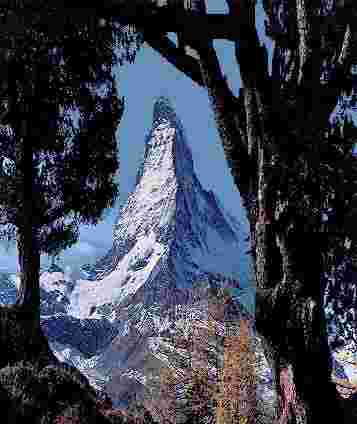When a rash of Pietist activity broke out in the
mid-thirties, Giezendanner broke his long public silence. He
held meetings in Lichtensteig and neighboring towns, and
people came from congregations throughout Toggenburg. This
growing awakening once more called for sharp action by the
local church authorities in 1736. While allowing godly
conversation and edifying meetings held in homes, the new law
forbade all Sunday and weekday meetings which might draw
people from public worship services. Especially condemned
were meetings held by "suspicious persons". The
edit seemed to hit the often-investigated Giezendanner. He
understood the situation and left for America with some
relatives and friends in the fall of the same year. They
joined a party of emigrants from the same general area of
Switzerland and traveled to South Carolina by way of England.
REF: The South Carolina Historical
Magazine article by H. George Anderson,
July 1966, Vol. 67, Nr.3 pgs. 129 -137
(In short basically the same info as above
in SC Hist Magazine):
(John) Hans Ulrich (Giezendanner), von Lichtensteig, von
beruf Goldschmied, trat 1713 als Agitator für den radikalen
Pietismus auf, studierte dann kurze Zeit in Marburg und nahm,
nachdem er aus Hessen ausgewiesen worden war, seine
Propaganda als Bussprophet und "Inspirierter" in
der Schweiz wieder auf, predigte unter grossem Zulauf kurz
hintereinander in Schaffhausen, im Toggenburg, im Thurgau, in
der Stadt St Gallen, in Zürich, wurde aber allenthalben von
der orthodoxen Geistlichkeit und den Behörden verfolgt und
vertrieben, begab sich in 1716 wieder nach Deutschland,
kehrte 1720 nach Lichtensteig zurück, arbeitete dann viele
Jahre ruhig als Goldschmied, begann 1736 seine Agitation von
neuem, wurde jedoch gleich durch das sog. Pietistenmandat von
1736 kaltgestellt und verzog sich nach Amerika.
REF: Paul Giezendanner (Switzerland)
When the Counselor of Lichtensteig found out that the
goldsmith Hans Ulrich, his brother Georg, the hatter, and his
brother Jakob, the tin man, were to emigrate to
"Carolina, an island in the sea", he gave them the
fatherly advice not to undertake such a costly, far and
dangerous journey, at least not as long as some of the
children were infants. When they persisted in their decision,
the Counsel granted 36 and 30 Gulden, to Jakob 2 Doublonen
"Viaticum", which had to be paid back in case of a
return. They never came back, but in stead had a substantial
part in establishing the nowadays flourishing
"Presbyterian College, Clinton, South Carolina".
REF: Geschichte des Toggenburger
Städtchens Lichtensteig - 1978 - by Armin Meier
In 1966 research was done by Mr Walter
R Robbins from Presbyterian College, Clinton, South
Carolina into the history of one of his fathers of
"denomination", which happened to be Hans
Ulrich Giezendanner
REF: Geschichte der Evangelischen Kirchgemeinde
Lichtensteig 1528-1967
by Armin Müller, Wattwil, 1967
next page
INDEX
